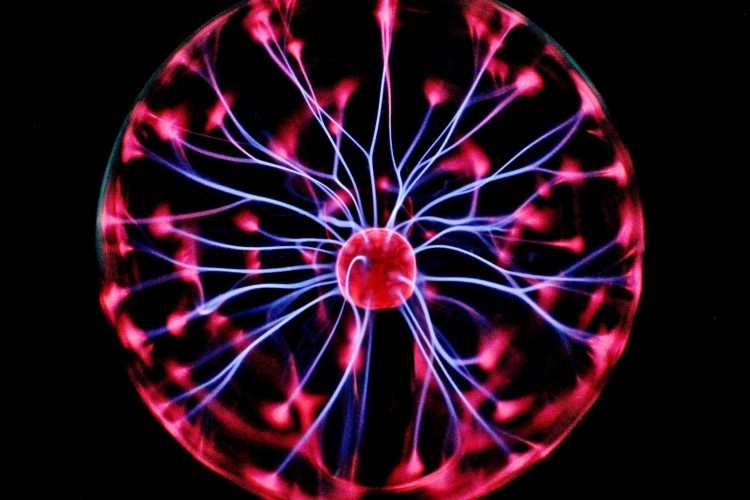- CONTACT US
- AFS
- Business
- Bussiness
- Car
- Career
- Celebrity
- Digital Products
- Education
- Entertainment
- Fashion
- Film
- Food
- Fun
- Games
- General Health
- Health
- Health Awareness
- Healthy
- Healthy Lifestyle
- History Facts
- Household Appliances
- Internet
- Investment
- Law
- Lifestyle
- Loans&Mortgages
- Luxury Life Style
- movie
- Music
- Nature
- News
- Pet
- Plant
- Politics
- Recommends
- Science
- Self-care
- services
- Smart Phone
- Sports
- Style
- Technology
- tire
- Travel
- US
- World
- エンタメ
- スポーツ
- 科学
- 経済

Most minerals are easy to ignore — calcium isn't.
You probably know that calcium is essential for bones. But it goes beyond that: almost every cell depends on calcium—nerve impulse transmission, heart beating, vascular contraction, muscle function (e.g., running and jumping). These uses are paramount, compared to the skeletal role.
In case of dietary calcium insufficiency, body "robs Peter to pay Paul" —bone stores depleted and calcium enters the blood to fulfil vital functions. This causes osteoporosis and mood disorders over time, irritability anxiety depression insomnia. The body's calcium needs are huge and so easily unsatisfied.
Calcium Needs Per Day
Adults: 800mg/day, varying with age
- Age 9–18 years (adolescents): 1,300mg/day — rapid-growth stage
- Age 50+ years (seniors): Men require 1,000 mg/day; women need 1,200 mg/day (high risk of osteoporosis).
The Reality of Deficiency
Nutrition surveys from 1991–2015 in China showed calcium to be the most deficient nutrient, with 95% population unable meet intake standards. Out of 100 people, only 5 obtain adequate dietary calcium.
It’s worse in vulnerable groups:
- Adolescents (11–18 years): Their maximum daily intake of 380mg barely scratches 29% RNI, against 1,300mg required.
- Seniors (60+ years): In 2015, only 2.8% reached adequate calcium intake (*China National Nutrition and Health Survey*).
What is the Implication?
If you don't get enough, the body will start cannibalizing your bones—and faster osteoporosis, 1 in 3 women over 50 are affected globally by this disease. The crisis is compounded by emotional instability, as calcium influences neurotransmitter release.
How to Win
- High Calcium Foods: Dairy (milk 300mg/100ml), leafy greens (kale, bok choy) and fortified tofu.
- Supplements (calcium citrate or carbonate) if your intake is less than 70% of the required amount.
- Combine with vitamin D to promote absorption (600–800 IU/day).
The Health Need of An Hour
China's calcium crisis demands a systemic response — public nutrition education, affordable supplementation programmes and fortification staple foods. For people, it's not just the bones — getting enough helps maintain cellular vitality and emotional stability.
LATEST POSTS
- 1
 All the ways Marjorie Taylor Greene has shifted her approach lately — and why Trump is 'surprised at her'
All the ways Marjorie Taylor Greene has shifted her approach lately — and why Trump is 'surprised at her' - 2
 Visiting This Japanese City Just Got A Little More Expensive (Here's What Travelers Should Know)
Visiting This Japanese City Just Got A Little More Expensive (Here's What Travelers Should Know) - 3
 BravoCon 2025: How to watch, full schedule and lineup, where to stream free and more
BravoCon 2025: How to watch, full schedule and lineup, where to stream free and more - 4
 Full SNAP benefits must be paid ‘promptly,’ USDA tells states as government reopens
Full SNAP benefits must be paid ‘promptly,’ USDA tells states as government reopens - 5
 What to know about Jack Dorsey's new Vine revival, DiVine
What to know about Jack Dorsey's new Vine revival, DiVine
 Postural problems affect the organs and when is the best time for postural management?
Postural problems affect the organs and when is the best time for postural management? The most important factor dominating your health: your lifestyle
The most important factor dominating your health: your lifestyle Light Fasting, the Anti-Aging Switch for the Age of Longevity
Light Fasting, the Anti-Aging Switch for the Age of Longevity Three Types of Cold and Flu Medicines to Keep at Home
Three Types of Cold and Flu Medicines to Keep at Home The Science of Toothpaste: How to Choose the Right Toothpaste for Oral Health
The Science of Toothpaste: How to Choose the Right Toothpaste for Oral Health "The Water Dripping Through Stone" Principle: Incorporating Exercise into Your Lifestyle
"The Water Dripping Through Stone" Principle: Incorporating Exercise into Your Lifestyle How to Select Thoracic Spine Protection Tools
How to Select Thoracic Spine Protection Tools Vitamin C in Food: Why Do We Still Feel Deficient?
Vitamin C in Food: Why Do We Still Feel Deficient? What’s the Best Average Weekly Sleep Duration?
What’s the Best Average Weekly Sleep Duration?













